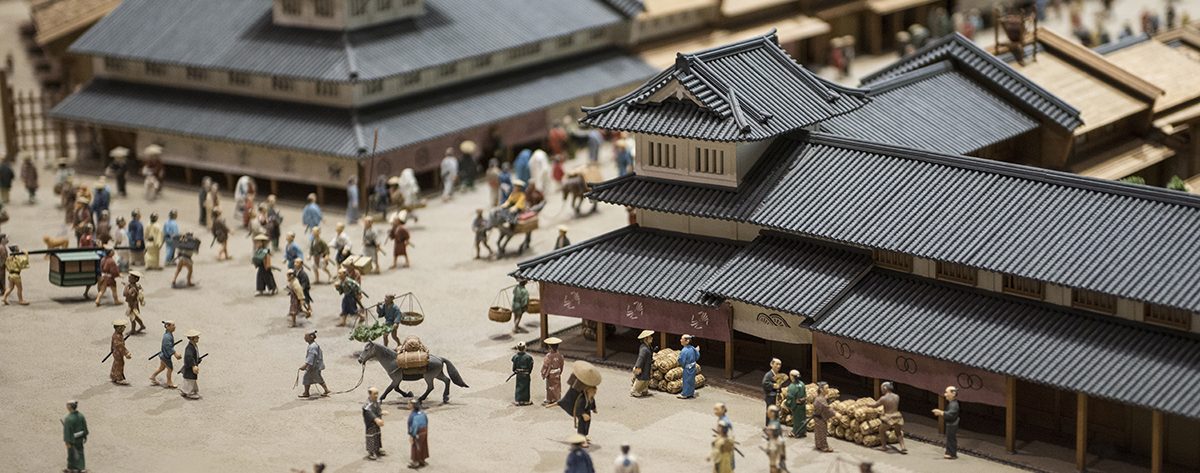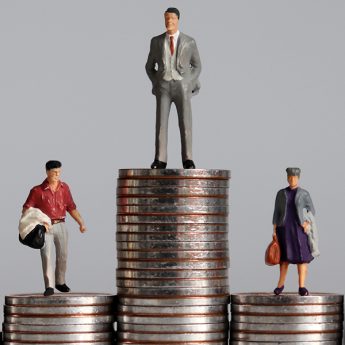All sorts of economies coexist these days. There is the gig economy, the platform economy, and the sharing economy. The last gets talked about a lot. And then there is the on-demand economy, which also attracts a fair amount of attention. These are all new and are all very 21st century.
Or are they? A quick look at Japanese history reveals some startling similarities between the new economies of today and the established practices of Japan’s nearly 300 years of seclusion during the Edo period (1603–1867).
For one, the gig economy was all the rage in Edo period Japan. Pretty much everyone was a gig-style worker in those days. Except for the samurai classes. The samurai were salarymen. They worked on lifetime employment contracts—and not for single generations, either. Employer and employee both were hereditary positions. My master’s father was my father’s master, and my master’s son shall be my son’s master, and so on.
Getting the gig
But this was not so for the non-samurai citizenry. Unless you ran a business of your own, you were basically a gig worker flitting from job to job. Servants, housemaids, cooks, gardeners, builders, butlers and all sorts of assistants, among others. People were either self-employed or hiring themselves out on time-limited contracts.
The Edo period economy was also a platform economy. Platform businesses matching gigs to gig workers were a popular and profitable pursuit. The Japanese word for the Edo-version platformer was kuchiireya. Kuchiire means “speaking for” and ya stands for “house”. These people would put in a word for the gig providers and the gig workers who registered with them. The other name for the kuchiireya was keian, after the physician Keian, who is said to have invented the business of matchmaking.
What’s yours is mine
Sharing was also an everyday feature of Edo period life. You borrowed everything from everybody. From soy sauce and rice to the formal wear needed to attend weddings, you could not hope to get through life without the sure knowledge that you could borrow from others. Your next-door neighbour’s knives and forks—or in this instance chopsticks and rice bowls—were your own and vice-versa. You minded their children and they minded yours. The widespread availability of the communal bath meant you did not need to have a bathroom of your own to keep yourself nice and clean throughout life.
The on-demand concept was one that was very familiar to the Edo populace. Be it large merchant houses or prosperous retired senior citizens, people never fretted about the availability of competent servants or helpers. They knew such people would always be provided on demand by shrewd and well-connected kuchiire platformers. The same would apply to job-seekers on the other side of the platform. Either for festivities or for mourning, clothing for the special occasion was always supplied on demand by rental or second-hand clothing shops.
Third verse, same as the first
So, there we are. There is nothing new under the sun. There is, however, one notable difference between the various economies of Edo Japan and those of the globalised 21st century. The overlapping area among the new economies of today can actually be quite a hazardous place. A would-be gig worker places his skills on internet-based platforms. There is no knowing what kind of working conditions await them. And the intense competition means there is always a race to the bottom in terms of pay. The sharing economy is all very well, but quality control is, at best, patchy and more likely non-existent.
The on-demand economy is but another name for the expendable economy. However supreme your performance, you are discarded once the immediate requirements for your skills are met. Life is highly precarious for people who step into the multi-layered zone where the new economies meet. This becomes a potential danger zone for people’s rights and personal safety, due to one other economy which is conspicuous for its absence in this whole picture.
The caring economy
The platformers make a point of making it clear they take no responsibility for the risks people take in putting their wares and skills on their stalls. Nor, indeed, for the people who look for on-demand items among the line-up of goods on offer there. People participating in the sharing economy do not, for the most part, really care about the counterparties to the sharing transaction.
By contrast, Edo citizens shared things with the people they cared about. The kuchiire platformers prided themselves in the care they took in the search for compatibility between gigs and gig workers. Nor did they stop there. They would negotiate with gig providers to ensure decent pay for the gig workers. They would continue to keep watch so that gig workers were treated fairly by their employers. The people of Edo Japan seemed to know instinctively that sharing without caring was not really sharing, and that careless platforms could all too easily turn into a marketplace for slave trading. We need to learn from history.







